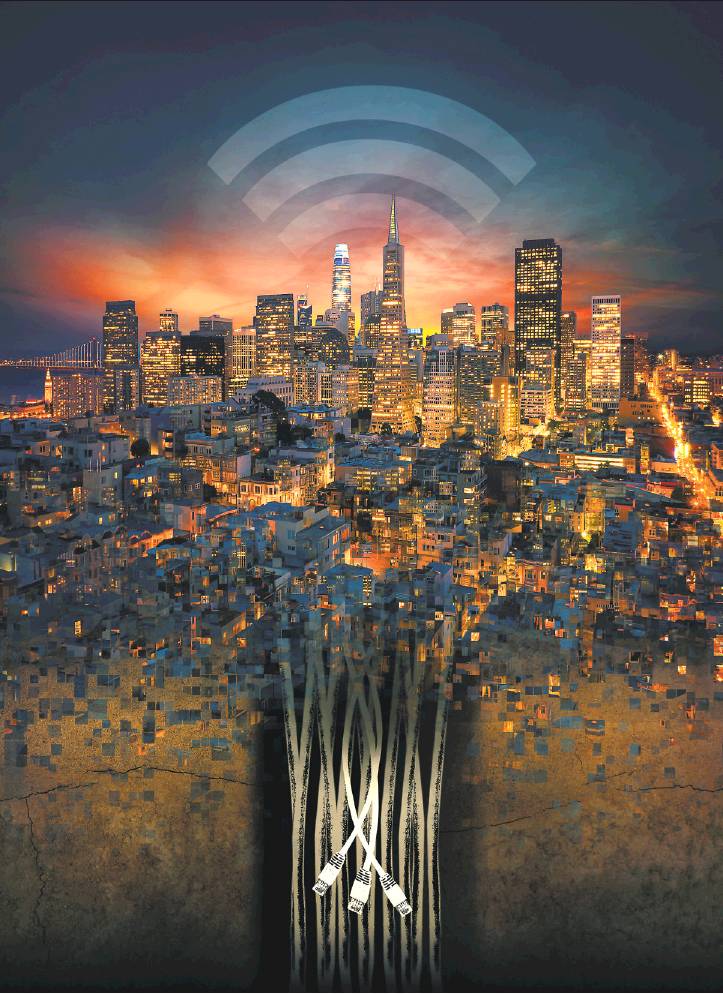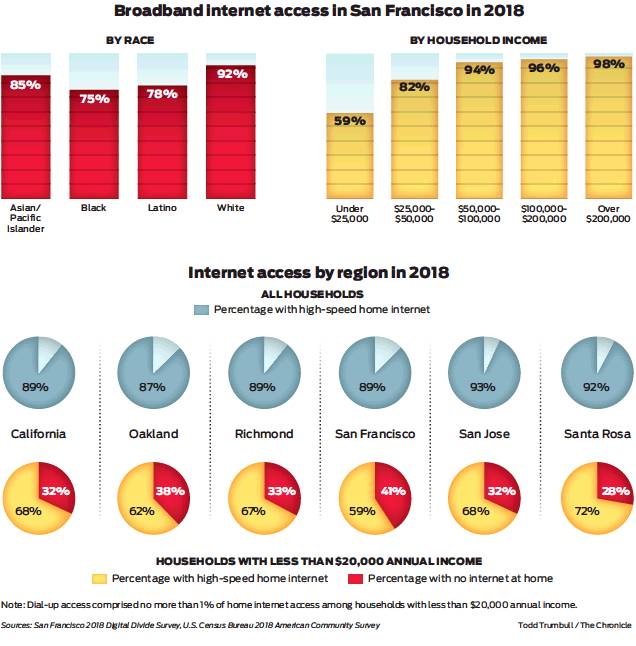WHAT IF WE CLOSED THE DIGITAL D I V I D E ?
As the city works to connect more residents to its growing fiber broadband network, it is slowly stitching up the local digital divide. If one day, high-speed hookups truly become a universal feature of San Francisco, how would our lives tangibly improve?
We posed that question to city Department of Technology CIO and director Linda Gerull, who outlined some of the potential benefits and efficiencies city residents could enjoy with ubiquitous internet.
Education and health care equity: “Distance learning and telecare would become less stressful and more feasible. For students, internet access means less friction logging into classrooms, submitting homework assignments or having one-on-one teacher conferences. For seniors, it means one-click prescription refills, virtual checkups and lightning-fast telemedicine.”
Healthier, cleaner communities: “Imagine a day when the internet of things extends to your garbage bin, so that sanitation crews know exactly where trash is piling up and can deploy resources accordingly. Or, as online shopping and home-delivery become the norm, the internet becomes a lifeline for poorer families to access affordable groceries, alleviating health issues associated with urban food deserts.”
Stronger democracy: Since shelter-in-place, Gerull says, San Francisco public meetings have been ported to video-casts and people have been logging on in droves to watch and participate in civic life. For example, the first Board of Supervisors meeting after lockdown drew more than 800 online viewers. Other meetings have seen viewer-ship increase a hundredfold, according to Gerull. “Virtual meetings will be something that sticks around into the future.”


